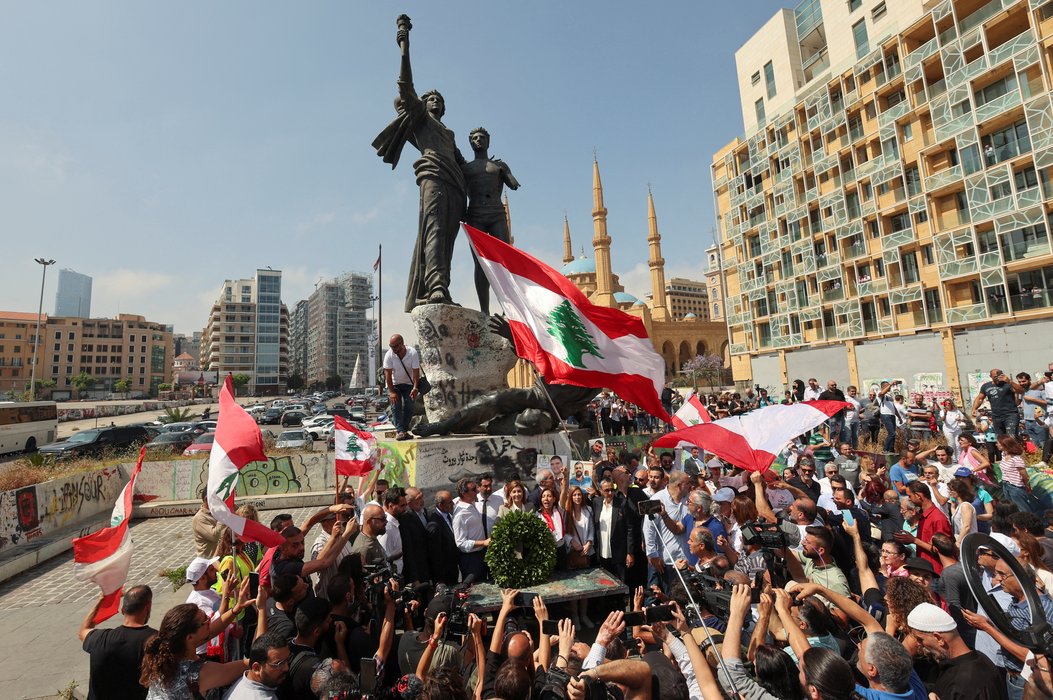
Introduction
During his visit ahead of the parliamentary elections in May 2022, the Special Rapporteur on extreme poverty and human rights, Olivier De Schutter, acknowledged that:
“Lebanon, once a country with high human development and life expectancy levels, has been plunged into one of the worst economic and financial crises in world history. Since 2019, over 80 per cent of its population has been pushed into poverty, the currency has lost 95 per cent of its value, and prices have increased by more than 200 per cent.”
The Special Rapporteur added:
“Lebanon needs to change course. The misery inflicted on the population can be reversed with leadership that places social justice, transparency and accountability at the core of its actions. The international community can and should provide support, but such support will only have an impact if structural reforms are adopted to put an end to the process of impoverishment.”
The outcome of the May 2022 elections in Lebanon saw some moves in the right direction with the bloc led by Hezbollah losing its majority and independent candidates winning 13 of Parliament’s 128 seats. However, concerning developments on civic space continue to take place. Additionally, the Lebanese Association for Democratic Elections also documented multiple violations of the integrity and confidentiality of the elections by various parties.
Expression
There were violations on freedom of speech and attacks against journalists documented during the elections. The preliminary statement of the EU election observation missionnoted a lack of an “even playing field” :
- While freedom of expression was mostly respected during the campaign period, there were cases of intimidation documented.
- In contradiction with the law, the media failed to provide “equal visibility to all candidates and candidate lists”. For example, there was unequal paid-for electoral content broadcast on the three major private television channels and unbalanced coverage was also noted in politically affiliated media.
- Freedom of speech online was curtailed by intimidatory practices. This was partly as a result of the election law which did not reflect on the increased use and specificity of social media and the Supervisory Commission for Elections (SCE) who did not have an explicit mandate over violations on social media. Candidates largely used social media to campaign, including through boosted content.
- The online space was distorted by a widespread negative campaign by contestants, derogatory comments by social media users, with several severe instances of intimidation against candidates, and manipulative attempts to impose narratives shared by pages and accounts affiliated to parties.
On the other hand the Lebanese Association for Democratic Elections,, LADE, which monitored the parliamentary elections, registered many irregularities and violations during the polls. LADE said its members were threatened and attacked by several groups, mostly in areas controlled by Hezbollah and Amal.
مناصرو حزب الله وحركة أمل يحاصرون مركز لائحة "معًا نحو التغيير" في أنصار - النبطية بعد التعرّض لمصوّر "ميغافون" بسبب تصويره مخالفات لح*ب الله داخل مركز الاقتراع في البلدة.@megaphone_news #انتخابات_2022#لأربع_سنين pic.twitter.com/I6ojumsizP
— LADE (@LADELEB) May 15, 2022
For instance, on 15th May 2022, journalist Hussein Bassal, who works for alternative media website Megaphone, was beaten and kicked by dozens of supporters of the Hezbollah political party and militant group while he was covering the parliamentary elections in the southern village of Ansar, according to a video and tweet by his employer and a video posted on social media of the journalist after the attack. Bassal was wearing his press permit, issued by the Ministry of Information, and covering elections in Ansar when he began documenting tactics by the Hezbollah party to add votes, such as accompanying voters behind the electoral barrier by claiming that the voters were illiterate and bringing large numbers of people with severe illnesses and disabilities to vote for their party.
With regard to the case of Bassal, the Committee to Protect Journalists (CPJ) noted:
“We condemn the attack on Megaphone video journalist Hussein Bassal while he was covering the elections in Lebanon, and we demand an investigation that holds the perpetrators to account.”
Additionally, Reporters Without Borders noted that the election “saw unchecked violence against reporters” with harassment and violence against journalists coming from political activists and security forces. For example, Skynewsarabia reporter Salman Andary andcameraman Mohammed Hanouna were prevented from broadcasting live at a voting station in Dekouane. Maher Qamar, a reporter for the Hezbollah-owned TV channel Al-Manar and his crew were also prevented from reporting after individuals attacked their vehicle and physically attacked Qamar. RSF secretary-general Christophe Deloire said:
“The environment is increasingly hostile for journalists in Lebanon. We demand that the Lebanese authorities carry out an investigation and identify those who have attacked journalists so that they can be tried and convicted in the appropriate manner. If these attacks remain unpunished, the problem will keep growing and will become harder and harder to rein in.”
#LEBANON: Physical violence, threats, microphones snatched, TV reporters interrupted during live streams, political activists and authorities are using disproportionate violence against journalists. pic.twitter.com/AAtIHRrdho
— RSF (@RSF_inter) May 23, 2022